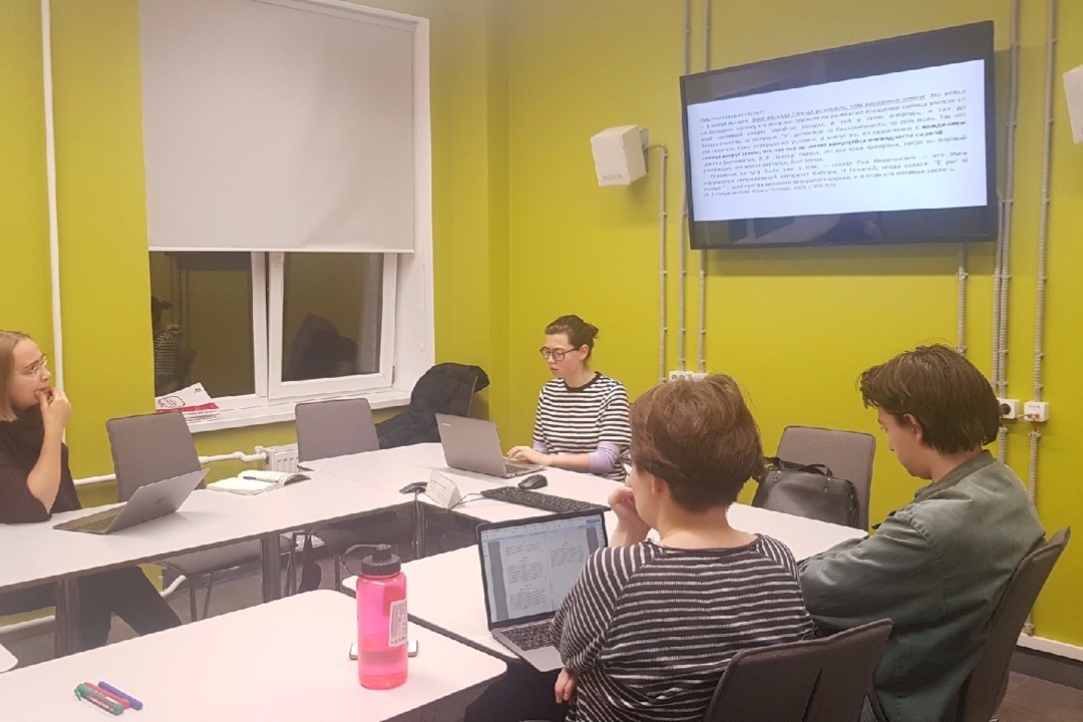The Ninth Research Seminar «Magic, Astrology, and Science in Russian Modernism»
On November 14, the ninth research seminar «Magic, Astrology, and Science in Russian Modernism» took place. Varvara Kukushkina and Pavel Yushin (via Skype) presented a fragment of the group's collective research, with a report «On the Perception of Heliocentrism in the Second Half of the 19th and Early 20th Centuries».

The starting point of the presentation was the opposition between Sherlock Holmes (the hero, who does not want to know about the Copernican system for practical reasons) and Professor Moriarty (the villain, who is a professional mathematician and astronomer) that captures several distinctive features of the attitude towards heliocentrism in the intellectual culture of the second half of the 19th and early 20th centuries. According to historians of cosmological ideas (such as Dorothy Stimson and Boris Raikov), in the first half of the 19th century, the controversy over the Copernican system was by and large exhausted. Arguing to the contrary, the speakers examined a number of later anti-Copernican texts, focusing on the popular books of the German writer Karl Schöpfer («Die Erde steht fest», 1853; «Die Widersprüche in der Astronomie», 1869), and pointed out some of the preconditions for their appearance — in particular, the tradition of Rousseauistic criticism of science. At the turn of the century one of its most famous adherents, Leo Tolstoy, was contemplating a refutation of the Copernican system, being influenced by the writings of Schöpfer. The final part of the presentation was devoted to educational practices within which children's perceptions of the heliocentric system were problematized.
